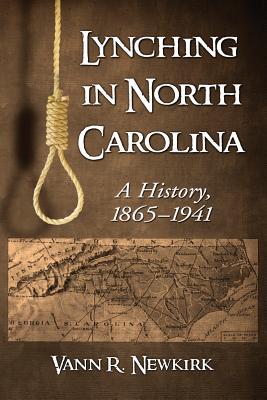From the end of the Civil War through 1941, a total of 168 North Carolinians lost their lives to lynching. This form of mob violence was often justified as a means of controlling the black population, "protecting" white wives and daughters, and defending family "honor." Legal attempts to deter lynching--including an 1893 law that classified it as a felony and sought to hold a county liable for damages--generally failed because of a lack of local support and ineffectual enforcement by state officials.
After 1922, however, in a phenomenon unique to North Carolina, incidents of lynching inexplicably and rapidly declined, prompting the state to head a national movement to end it. This history includes appendices providing an account of all 168 known lynching occurrences.
